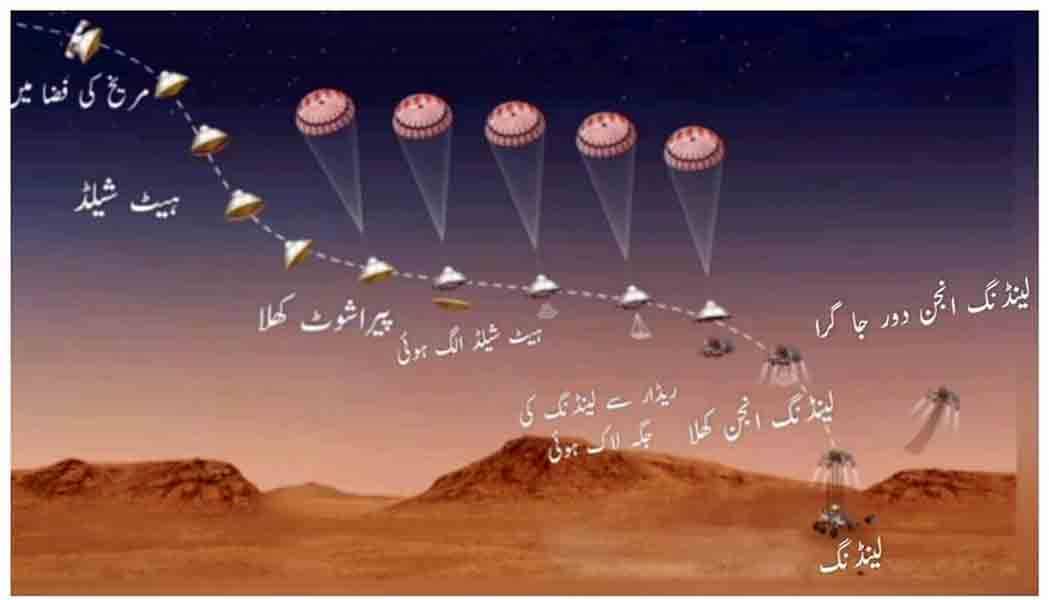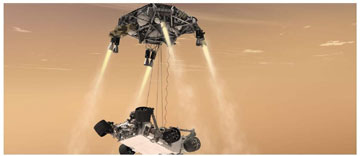7 minutes of fear!!
NASA sends its most advanced robotic rover "Preservation" to Mars in 2021. But Mars is not the home of any pilot or human landing. Until now, many countries have tried to land a rover or a lander on Mars, and most have faced failure, but the United States space exploration agency, NASA, is the only organization that has done so in the past. The record has been excellent.
Mars is actually very far from Earth. how far It depends on where in the year Mars and Earth are in their respective orbits around the Sun. If Mars and Earth are on the same side of the Sun in their respective orbits, then this distance is less and if they are on the opposite side of each other, this distance is greater.
It happens once in two years that the distance between Mars and Earth is the shortest. So the mission is planned in such a way that the spacecraft is sent to Mars seven or nine months before Mars reaches the point where it is closest to Earth. So that the spacecraft will reach there only when Mars is at that particular point.
Well, even at the closest distance from Mars, the radio signals sent from Mars to Earth travel at the speed of light and reach Earth in less than eleven minutes.
Now the multi-billion dollar rover and the mission to land it will reach the atmosphere of Mars and it takes eleven minutes to reach it, while the landing below the atmosphere of Mars takes a total of seven minutes, so NASA engineers and scientists except technology Can't do anything but trust and wait. In order to complete the mission, all its steps and all parts will have to land on autopilot without any human assistance under a sequence and program.
In those seven minutes, mission control people on the ground can only hope that the technology they have built from years of hard work and years of tireless research and experimentation will work properly when the time comes. And sometimes it doesn't work or sometimes there are big rocks or potholes at the landing site, what can be done? Then the mission planning is done very carefully. The landing site is chosen very carefully. All deployable parts of the mission are repeatedly checked and the autopilot and navigation system are subjected to several ground landing experiments in difficult conditions.
On February 18, Preservation did something similar. On July 30, 2020, this mission, sent from Earth, carried the rover in a spacecraft and entered space, and after about six and a half months, the spacecraft released the rover into the atmosphere of Mars, hidden in the heat shield and landing system.
Imagine that at a speed of 20,000 kilometers per hour, this rover, protected by a heat shield, enters the Martian atmosphere and has to slow down enough to land on a fixed site on Mars without any damage. The friction of the heat shield in the atmosphere reduces its speed by about ten times the speed of entry into the atmosphere, i.e. about 2 thousand kilometers per hour. It is almost one and a half times faster than the speed of sound. Then the attached supersonic and huge parachutes open which further reduces its speed. At the same time, the heat shield separates. And the radar in the landing engine's navigation system locks the landing site like Amitabh Bachchan locks the computer's answer in Koon Banega Crorepati. Then the thrusters in its engine reduce its speed further, and a few meters above the surface of Mars, the rover is soft-landed by strong wires from the landing engine to a crane, and the engine lifts off again away from the landing site. falls so that the rover is safe.

During those seven minutes, scientists and engineers sitting in NASA's mission control room on Earth can only wait and receive a signal a few minutes after landing that the landing has been made safely. Landing on a planet hundreds of millions of kilometers away from the earth with the hard work, technologies and tireless efforts of many people is not a miracle of intellect.

